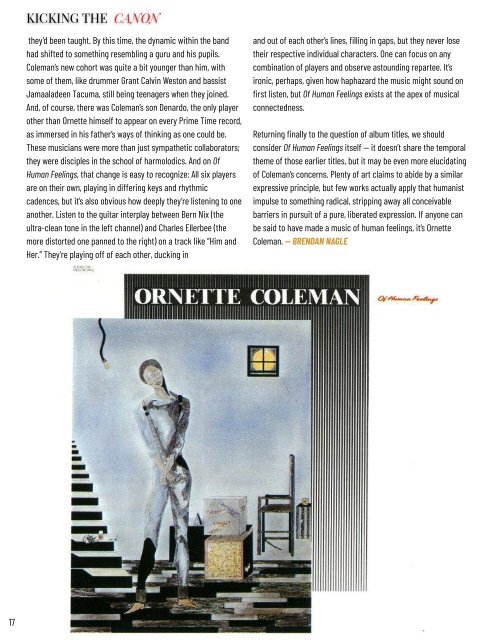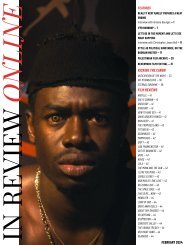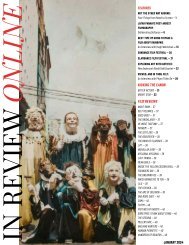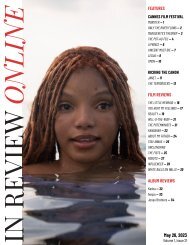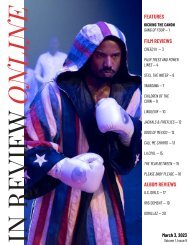InRO Weekly — Volume 1, Issue 10
Create successful ePaper yourself
Turn your PDF publications into a flip-book with our unique Google optimized e-Paper software.
KICKING THE CANON<br />
they’d been taught. By this time, the dynamic within the band<br />
had shifted to something resembling a guru and his pupils.<br />
Coleman’s new cohort was quite a bit younger than him, with<br />
some of them, like drummer Grant Calvin Weston and bassist<br />
Jamaaladeen Tacuma, still being teenagers when they joined.<br />
And, of course, there was Coleman’s son Denardo, the only player<br />
other than Ornette himself to appear on every Prime Time record,<br />
as immersed in his father’s ways of thinking as one could be.<br />
These musicians were more than just sympathetic collaborators;<br />
they were disciples in the school of harmolodics. And on Of<br />
Human Feelings, that change is easy to recognize: All six players<br />
are on their own, playing in differing keys and rhythmic<br />
cadences, but it’s also obvious how deeply they’re listening to one<br />
another. Listen to the guitar interplay between Bern Nix (the<br />
ultra-clean tone in the left channel) and Charles Ellerbee (the<br />
more distorted one panned to the right) on a track like “Him and<br />
Her.” They’re playing off of each other, ducking in<br />
and out of each other’s lines, filling in gaps, but they never lose<br />
their respective individual characters. One can focus on any<br />
combination of players and observe astounding repartee. It’s<br />
ironic, perhaps, given how haphazard the music might sound on<br />
first listen, but Of Human Feelings exists at the apex of musical<br />
connectedness.<br />
Returning finally to the question of album titles, we should<br />
consider Of Human Feelings itself <strong>—</strong> it doesn’t share the temporal<br />
theme of those earlier titles, but it may be even more elucidating<br />
of Coleman’s concerns. Plenty of art claims to abide by a similar<br />
expressive principle, but few works actually apply that humanist<br />
impulse to something radical, stripping away all conceivable<br />
barriers in pursuit of a pure, liberated expression. If anyone can<br />
be said to have made a music of human feelings, it’s Ornette<br />
Coleman. <strong>—</strong> BRENDAN NAGLE<br />
17


